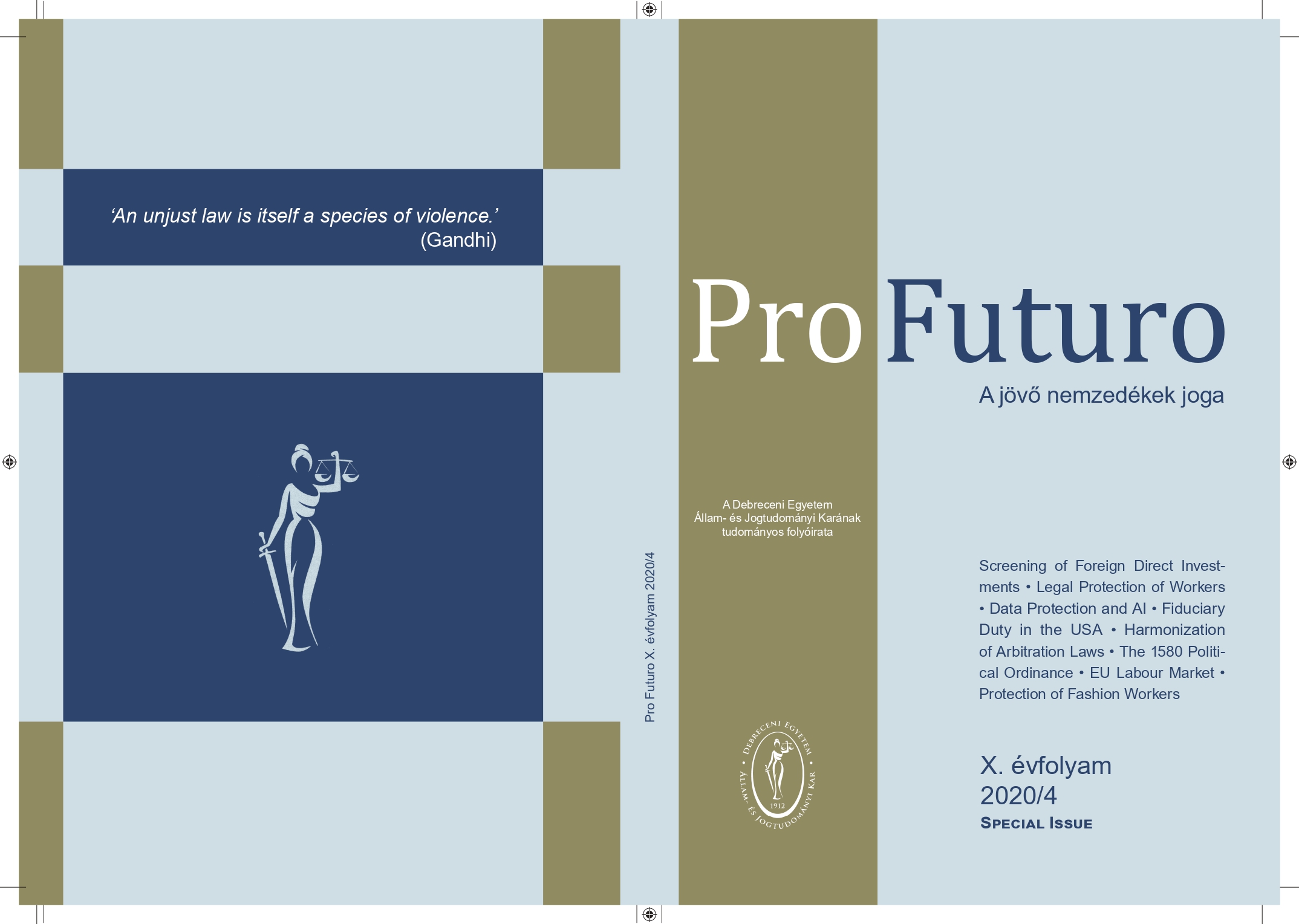Balancing Work and Life: New Developments in the Field of Legal Protection of Workers
Szerző
Megtekintés
Kulcsszavak
Licenc
Copyright (c) 2021 Pro Futuro

This work is licensed under a Creative Commons Attribution-ShareAlike 4.0 International License.
Hogyan hivatkozzuk
Absztrakt
Jelen tanulmány a munka és a magánélet összehangolásának időszerű munkajogi kérdéseivel foglalkozik. A vizsgálat aktualitását az (EU) 2019/1158 irányelv adja, amely meglévő jogalkotási alapokra építkezve számos kérdésben jelentős újdonságot hoz e szabályozási területen, felfrissítve a gyermeket nevelő munkavállalókat érintő egyenlő foglalkoztatási kritériumrendszer kulcselemeit. A feldolgozott szabályozás illeszkedik a Szociális Jogok Európai Pillére által kijelölt magas szintű szociális, munkavállalói jogvédelmi irányvonalba, így a kidolgozásban e szempont is szerepet kap. Elemzésemben az új irányelv szabályozási hátterére, tárgyára, alapjogi kötődésére és a potenciálisan megerősödő munkavállalói jogvédelmet körülíró újabb irányelvi normákra koncentrálok. Ezek szintézise alapjén pedig következtetéseket vonok le az új szabályozás prognosztizálható jövőbeli hatásaira nézve.
The present study deals with the current labour law questions of balancing work and private life. The topicality of the study is supported by Directive (EU) 2019/1158 which, built on the existing legislative basis, brings several novelties in this regulative area refreshing the key elements of the criteria of equal employment referring to the employees raising children. The researched regulation fits into the high level, socially motivated; worker-protection Directive designated by the European Pillar of Social Rights, consequently, this aspect also plays a role in elaboration. In my analysis, I concentrate on the regulative background, subject of the new Directive, as well as its connection to fundamental social rights and the new norms describing the potentially strengthening legal protection of workers. I draw conclusions based on their synthesis about the predictable future effects of the new regulation.


 https://doi.org/10.26521/profuturo/2020/4/9464
https://doi.org/10.26521/profuturo/2020/4/9464